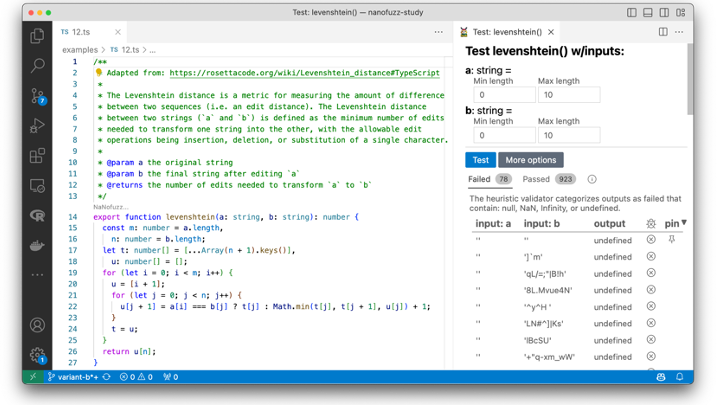Accelerated Software Testing
Faculty

NaNcy the Silky Anteater, the NaNofuzz mascot
The United States spends more than $48 billion/year on software testing, and many powerful testing tools have significant usability barriers that limit their use to expert software engineers.
Our empirical and theoretical research program identifies, quantifies, and then lowers usability barriers by creating novel interventions that help to make powerful testing approaches such as fuzzers and property-based testing more accessible to a wider range of users and in a wider-range of contexts than they were previously.
Our research methods include human and lab studies, prototype tool building, quantitative and qualitative analysis, among others. Our research program is supported by NSF and CyLab grants and encompasses projects that are making important contributions such as the NaNofuzz ATUG (Automatic Test sUite Generator), the TestLoop theoretical process model of test suite generation, and the PURSE project that aims to lower barriers to planning and running human studies of software engineers.

Researchers
Brad Myers ,
Matthew Davis, Joshua Sunshine, Sam Estep
Research Areas
End-User Programming, Sensemaking, Tools

